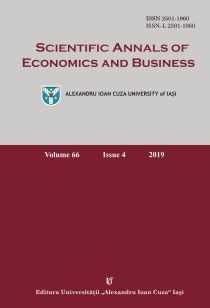Price Clustering in Bank Stocks During the Global Financial Crisis
Price Clustering in Bank Stocks During the Global Financial Crisis
Author(s): Júlio Lobão, Luis PachecoSubject(s): Economy, Supranational / Global Economy, Financial Markets
Published by: Editura Universităţii »Alexandru Ioan Cuza« din Iaşi
Keywords: price clustering; financial crisis; behavioral finance; sovereign debt crisis; banking industry;
Summary/Abstract: Market anomalies are one of the most intriguing and fascinating phenomena observed in financial markets. This paper examines the incidence of price clustering in US and European bank stocks during the Global Financial Crisis. The results reveal a significant level of price clustering in European and US banks’ samples, which is difficult to reconcile with the Efficient Market hypothesis. The Attraction hypothesis and the Price Resolution/Negotiation hypothesis seem to be the best explanations for the clustering effect. However, the results also suggest that the uncertainty associated with the crisis did not have a significant impact in the clustering levels, which is at odds with the recently proposed Panic Trading hypothesis. Surprisingly, we observe a tendency to have less price clustering during the period of crisis and banks located in countries mostly affected by the European sovereign debt crisis exhibit lower levels of price clustering. These results are consistent with the idea that investors tend to be more analytical in their appraisals in periods of negative sentiment.
Journal: Scientific Annals of Economics and Business
- Issue Year: 66/2019
- Issue No: 4
- Page Range: 465-486
- Page Count: 22
- Language: English

